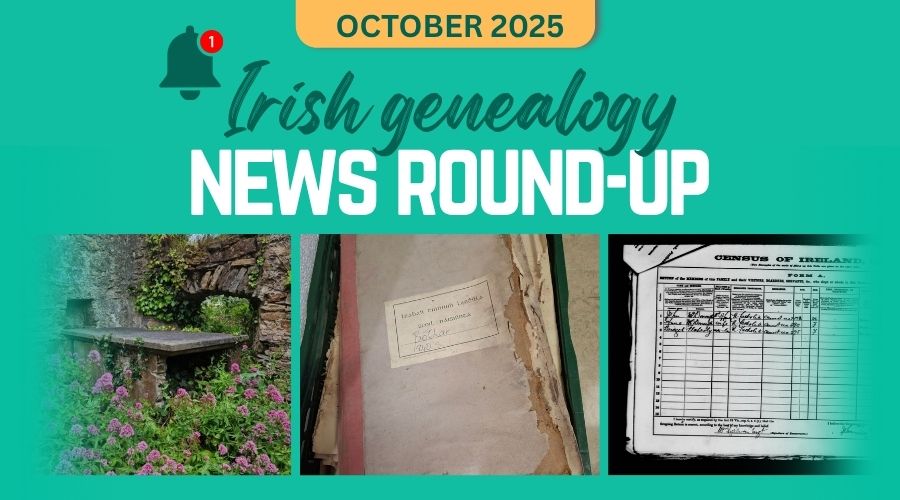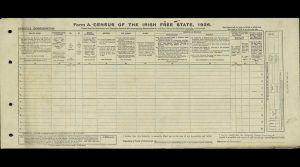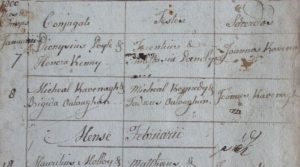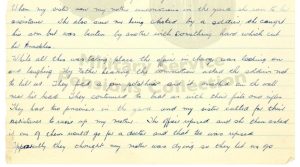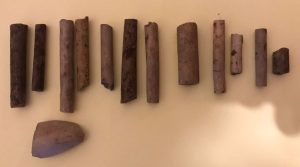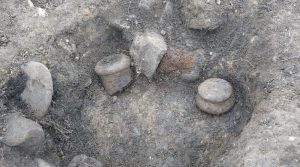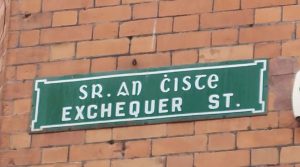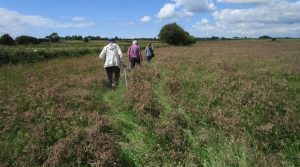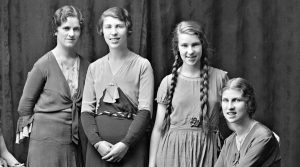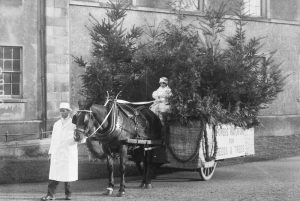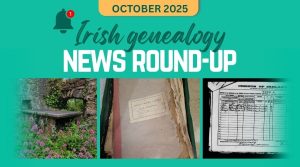In our Irish genealogy news round-ups, we share the latest developments and discoveries in Irish family history research. Highlights this month include tonnes of newly indexed records from across Ireland, the launch of the National Archives’ 1926 census programme, improvements to free sites for searching civil records and census records, and the relocation of the GRO search room and Valuation Office. There are also lots of upcoming webinars and conferences, along with special offers.
National Archives unveils 1926 census programme
The National Archives of Ireland has announced a major public programme to mark the centenary release of the 1926 census, which will be published online on 18 April 2026. The fully digitized and searchable census, containing more than 700,000 household returns, will offer a detailed picture of life in the 26 counties as the Irish Free State took its first steps as an independent nation. Alongside the release, the National Archives and the Department of Culture, Communications and Sport will launch exhibitions in Boston, London, Dublin and across Ireland, a new RTÉ documentary, a theatre production with ANU Production, a book titled The Story of Us: Independent Ireland and the 1926 census and a new learning resource and teacher’s pack for schools. The National Archives is also seeking “centenarian ambassadors” – people who were recorded in the 1926 census and are still living – to share their stories.
The Records Show – watch it back
The Records Show explores fascinating stories revealed in the records held in the National Archives. The second season aired on RTÉ One in September, running for three episodes. Filmed on location at the National Archives, the documentary series offers a rare look at its collections – from secret government reports and court records to maps, wills and personal correspondence – and takes viewers behind the scenes to show how preparations are progressing for the 1926 census release next year. Both this season and the first season (two episodes aired in 2023) are available to watch on the RTÉ Player here.
Sign up to our newsletter
Enhanced location search on IrishGenealogy.ie
IrishGenealogy.ie has introduced a new search feature for civil records and church records. When typing in the location field, three options now appear: “Civil Reg. Counties”, “Civil Reg. Districts” and “Church Locations”. Previously, civil record searches were limited to registration districts (Superintendent Registrar Districts) only. The new options offer greater scope and flexibility, making it easier to search across a larger area, which is especially useful if you only know the county or if your ancestor tended to move around.
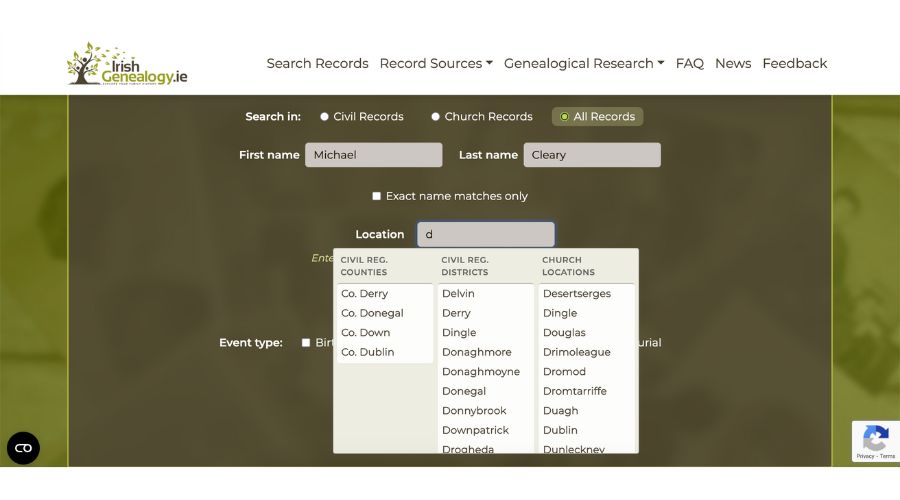
New table view for census record search results
In February, the National Archives of Ireland launched a new system for accessing the census records, and they have now added a very useful feature. When viewing search results, you can now toggle between “card” and “table” view under the “View as” dropdown. The table view displays all results line by line in a compact format. This makes it easy to skim through the indexed entries quickly and spot the individual you’re looking for at a glance – similar to the old system. You can search the census records here.
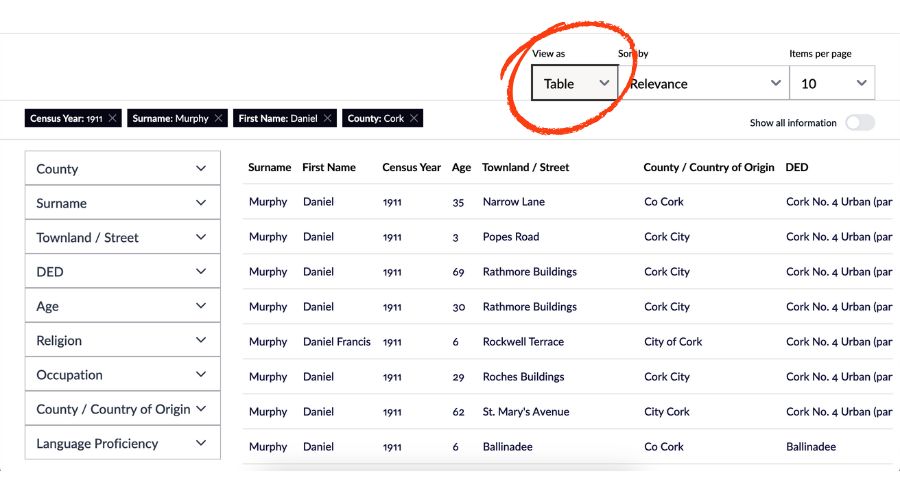
Missing census records finding aid
Genealogist John Grenham has highlighted gaps in the records of the 1901 census and, in particular, the 1911 census available on the National Archives site. Some census records were microfilmed but never digitized, while others were never microfilmed or digitized at all. In addition, John has explained that in some small villages, enumerators left the townland name blank, entering the village name instead under “City, Urban District, Town or Village”. Later, transcribers assumed that a blank townland meant no census returns, so the census returns for about 40 small villages are available online as images, but cannot be found via the search facility as they were never transcribed or indexed.
A D V E R T I S E M E N T
To access these missing records, John advises researchers to open the first image in the series for the village and navigate page by page by adjusting the number in the URL sequentially. For example, if the URL ends “…collections/search-the-census/view-pdf/?doc=nai002500860”, adding 1 (…861) moves forward one page, while subtracting 1 (…859) goes back. But how do you find the first image page for a village? John has compiled tables on his site of all known omissions for the 1901 census here and for the 1911 census here, with a link to the first image in each case where relevant. He also invites researchers to report any additional gaps they discover.
New free guide to the 1901 census
As anticipation builds for the release of the 1926 census in April next year, Accredited Genealogists Ireland (AGI) has published the second in its series of census guides, with the latest instalment taking a closer look at the 1901 census. The guide is available to download free of charge here.
>>> FULL STORY: New guide to Ireland’s 1901 census available for free download
New Derry museum to offer genealogy advice facility
Construction has begun on the £15m Derry North Atlantic (DNA) Museum at Ebrington Square, which will include a dedicated genealogy advice facility alongside archives, galleries, an exhibition space, a learning space and an event space. The museum aims to celebrate Derry’s unique heritage and help visitors explore their family history when it opens in spring 2027.
A D V E R T I S E M E N T
General Register Office relocation
The Search Room at the General Register Office (GRO) has moved from Werburgh Street to the Guild Building, Cork Street, Dublin 8 (D08XH90). Located on the second floor, it is open on Tuesdays only, from 9.30am to 12.30pm and 2pm to 4.30pm. The office also offers an email service for requesting searches and photocopies of civil birth, marriage and death registration records up to the present day. More details here.
Valuation Office relocation
Tailte Éireann announced in October that its Valuation Public Counter and Archive had moved from the Irish Life building on Abbey Street to its new Henrietta Street site. More details here.
A F F I L I A T E A D

Land, property, tenant and deed records
The free-to-access Ireland Genealogy Projects (IGP) archive has added several new transcribed tenant lists:
- Dublin: Tenants of the Stewart estate, 1797–1807
- Kildare: Tenants (workers) on the Lyons estate of Lord Cloncurry, South Salt, 1840
- Leitrim & Sligo: Tenants of the Wynne estate
- Limerick: Tenants (small farmers) on Maunsell land in Carrig Beg (Carraghbeg) townland, Castletown parish, 1848
- Waterford: Labourers on the Devonshire estate, Lismore, 1850
- Wexford: Tenants of H.K. Grogan Morgan, 1847
>
The subscription site RootsIreland has also indexed various land, property and farm records from several counties:
- Cork, Fermanagh & Kerry: Flaxgrowers index, 1796
- Cork, Dublin, Kerry & Wexford: Forfeiting proprietors (mainly Irish Catholics) whose estates were confiscated during the Cromwellian settlement, 1650s
- Dublin: Rental of land gable rents (ground rents), 1665
- Ulster: Tenant farmers on various estates (including Blackwood, Brownlow, Clanbrassil, Hertford, Kilmorey, Larne, Rowan and Skinners’ Company estates), 1651–1903
Please help support
Irish Heritage News
A small independent start-up in West Cork
Give as little as €2
Thank You
The subscription site Ancestry has added:
- Church of Ireland Land Tenure Index, 1878: derived from a government report on the sale of church land during the disestablishment of the Church of Ireland to former tenants and other members of the public, recording names, parishes, sale dates and property information
>
The volunteer-run Registry of Deeds Index Project has continued to expand its coverage across Ireland:
- 637,874 records from 65,444 memorials of deeds have been indexed as of 17 October, with around 90% of entries linking directly to record images on FamilySearch
>
The full database is free to search here.
Scroll down to voter lists for newly indexed freeholder lists – landholders who were eligible to vote.
Voter lists, political petitions and declarations
The subscription site RootsIreland has recently indexed various voter and freeholder records:
- Antrim, Fermanagh & Down: over 3,000 freeholders registered to vote between 1747 and 1837, includes names, residences, locations of freeholds and, where available, votes cast
- Dublin: over 10,700 registered electors in 1865, mainly residing in Co. Dublin, with some living abroad in Canada and Argentina
>
RootsIreland has also recently indexed details from political petitions and declarations:
- Cork, Dublin, Fermanagh, Kerry & Wexford: Anti-Repeal Declaration signatories, 1848 – includes occupations and addresses
- Down: Act of Union petitions signatories, 1799–1800
A D V E R T I S E M E N T
Occupational and commercial records
Ancestry has recently expanded its index of:
- UK, Register of Railway Employee Injuries and Deaths, 1880–1939: includes Irish records listing names, occupations, companies, employment dates, places of employment, locations of accidents or deaths, types of injuries and claim dates
>
Derived from the Railway Work, Life & Death project, the indexed records are free to access and can be searched here (you don’t need an Ancestry subscription).
Ancestry has also recently added a new record set relevant for those with ancestors in East Cork:
- Midleton Distillery Barley Purchase Books, 1825–34: records from James Murphy & Co at the Midleton Distillery, Co. Cork, detailing purchases of barley from local farmers – transcriptions include names and residences, with original images showing the number of barrels sold on a given day, the weight of the barley and the amount paid
>
Subscribers can search the record set here.
The subscription site RootsIreland has recently indexed occupational records for several counties:
- Cork, Dublin, Fermanagh, Kerry & Wexford: Licensed apothecaries and apprentices to apothecaries, 1791 – listing names, dates of applications and residences
>
The subscription site Ulster Historical Foundation has recently added:
- Belfast Operative House Painters’ Society – list of members for 1876
A D V E R T I S E M E N T
Church records for all of Ireland
MyHeritage has transcribed and indexed Irish Catholic parish records from the National Library of Ireland’s digitized microfilm collection. There are three free-to-access record sets:
- Catholic parish births and baptisms, 1740–1905
- Catholic parish marriages, 1742–1912
- Catholic parish deaths and burials, 1795–1881
>
Each transcription links to the corresponding image of the original register on the NLI site. These records have also been transcribed and indexed on FamilySearch, FindMyPast and Ancestry (all free to access). Because different platforms use different search algorithms, it’s worth trying several to maximize your chances of finding the right record.
Previously “missing” Catholic parish records for Rathangan, Co. Wexford, covering the years 1807–11, have been discovered by genealogist Dr James G. Ryan in the Franciscan Library in Killiney, Co. Dublin. The records fill a gap in the main parish register, which has missing entries from 1806 to 1813. Found in a priest’s notebook, the collection includes 230 baptisms, 46 marriages and 59 anointings, along with notes on dues, offerings and certificates. The newly transcribed entries are available to view for free on the Ancestor Solutions website here.
>>> FULL STORY: Newly rediscovered Wexford church records and other family history gems in Killiney’s Franciscan Library
The subscription site TheGenealogist has added over 900,000 newly indexed and transcribed Catholic parish records for Co. Waterford to its Irish parish records collection. Each transcription links to the corresponding image of the original register on the NLI site. The new records are available to diamond subscribers, or try for two weeks for free first here.
Sign up to our newsletter
The subscription site RootsIreland has the largest collection of transcribed and indexed church records and recently indexed a further 7,203 Roman Catholic baptism records for Moyvane parish in Co. Kerry, covering the years 1829-1911. The site already includes marriage records from the same parish, dating from 1831–1905. When conducting genealogical research, it’s worth noting that Moyvane parish was historically known by other names, including “Knockanure”, “Moyvane, Newtownsandes and Knockanure” and “Newtownsandes”. To search the Kerry records, click here and either log in or subscribe to access.
>>> YOU MIGHT ALSO LIKE: RootsIreland grows its Kerry resources with over 13,000 baptismal records from Castlegregory
Birth, marriage and death indexes for all of Ireland
The Irish Genealogical Research Society (IGRS) added around 1,000 new entries to its early Irish birth, marriage and death indexes last month, bringing the total to 422,134 names. Much of the new material comes from marriage settlements and other memorials recorded in Ireland’s Registry of Deeds, dating from 1708 onwards. The indexes can be searched on the IGRS site here, but full access is restricted to members.
Gravestone records
New transcriptions and photographs of gravestone inscriptions from seven graveyards were added to the volunteer-run, free-to-access Ireland Genealogy Projects (IGP) archive over September and October:
- Carlow: St Patrick’s (Roman Catholic) graveyard, Newtown
- Derry: Dungiven (Church of Ireland) graveyard, Main Street
- Derry: St Joseph’s (Roman Catholic) graveyard, Craigbane, Claudy
- Dublin: Kilbarrack graveyard
- Limerick: Reilig Íde Naofa, Abbeyfeale
- Wexford: St Patrick’s graveyard, Wexford Town
- Wexford: St Patrick’s (Roman Catholic) graveyard, Craanford
>
The North of Ireland Family History Society (NIFHS) has added 7,000 new names from gravestone inscriptions to its index, complementing existing entries in the index derived from church baptism, marriage and burial records. The entire index now includes about 90,000 names, some dating back to the 1700s. Searches are free, but full access requires membership. You can search the index here.
Although the records are not yet available, the Clonmany Genealogy and Heritage Group in Inishowen, Co. Donegal, is launching an ambitious graveyard indexing and mapping project to make the graves in the parish’s graveyards – St Mary’s in Cleagh and St Michael’s in Urris – easily searchable both in person and online.
>>> YOU MIGHT ALSO LIKE: Tracing your roots online using old records of Irish gravestone memorials and “Mems Dead”
Census search forms for Cork, Dublin, Fermanagh, Kerry and Wexford
The subscription site RootsIreland has indexed census search forms, or “Green Forms”, for Counties Cork, Dublin, Fermanagh, Kerry and Wexford. These forms were completed by Public Record Office staff using information supplied by applicants for the Old Age Pension, which was introduced in 1908. Because civil registration of births did not begin until 1864, applicants had no birth certificates to prove they were aged over 70. Proof of age was instead sought through census searches. The “Green Forms” record the results of the searches conducted by the Public Record Office staff between 1910 and 1922.
School, college and related records across Ireland
The subscription site RootsIreland has indexed school records from Co. Fermanagh dating to 1826 and 1827. It has also indexed college records listing matriculated and non-matriculated students attending Queen’s College Belfast, Queen’s College Cork and Queen’s College Galway between 1849 and 1860.
Tipperary Studies is now digitizing the Boher national school register and it will soon be available on their website.
The Digital Repository of Ireland (DRI) has published a new collection, “Ireland’s Educational Foundations: digitising and mapping the 1826 education inquiry”, which presents data from the 1826 Second Report of the Commissioners of Irish Education Inquiry. The collection includes maps and offers detailed information on schools across Ireland, including their locations, fees, schoolhouses, breakdown of pupils by religion and lists of masters and mistresses and their incomes. This resource provides insights into education in pre-famine Ireland and is now freely accessible here and you can view the interactive map here.
>>> YOU MIGHT ALSO LIKE: Find your ancestors in Ireland’s historical school records
Outlaw lists for Cork, Dublin and Wexford
The subscription site RootsIreland has indexed entries from a manuscript listing the names, addresses and sometimes occupations or status of those outlawed for treason between 1641–47 and 1691–98, together with the place of outlawry.
A D V E R T I S E M E N T
Emigration records for Antrim and Down
The subscription site RootsIreland has indexed 681 emigration records for Counties Antrim and Down, dating from 1773–1939. This record set draws on several sources, including workhouse registers, passenger lists and newspaper reports, which record the names, locations and sometimes the occupations of those emigrating from Ireland.
Workhouse records
The subscription site Ulster Historical Foundation has recently indexed records from Irish workhouse registers covering the years 1847–68. Read our full guide to workhouse records here.
>>> YOU MIGHT ALSO LIKE: Did your ancestor spend time in a workhouse?
Tipperary coroners’ inquests index
The subscription site Ancestry has added a new record set relating to coroners’ inquests, which took place in Co. Tipperary between 1832 and 1836. This index records details from official investigations into sudden, unexplained or violent deaths, including names, ages, occupations, inquest dates, locations, death information and parents’ names. The index preserves the verdicts and findings of the juries but does not include images of the original documents. Subscribers can search here.
Subscriber lists
The subscription site RootsIreland has indexed entries from historical lists of subscribers to publications and supporters of charitable or public causes, recording names, addresses and sometimes occupations. The entries include financial contributors in Cork, Dublin, Fermanagh, Kerry and Wexford to history books, poetry collections and other printed works. They also cover supporters of charitable and public causes in Antrim and Down, 1781–1900, including donors to hospitals, workhouses, churches and local welfare initiatives.
Fermanagh directory
The subscription site RootsIreland has indexed a list of inhabitants from the Belfast and Ulster 1900 Directory for Co. Fermanagh, recording names, addresses and, where noted, occupations.
A D V E R T I S E M E N T
Muster rolls for Fermanagh (men eligible for military service)
The subscription site RootsIreland has indexed entries from the muster roll for Co. Fermanagh, compiled between 1629 and 1633 by Lieut. William Graham, muster-master of Ulster. The index lists the names of settlers along with the estate owner’s name and, where recorded, the barony, town or lordship.
British Newspaper Archive – latest Irish additions
The subscription site British Newspaper Archive has continued to expand its Irish collection over the past month, adding several new titles together with additional issues for titles already in the collection:
- Belfast News-Letter (also known as Belfast News-Letter and General Advertiser; News Letter), published in Belfast, 1738–2004
- Illustrograph, published in Dublin, 1894–99
- Irish Golfer, published in Dublin, 1899–1900
- Irish Church Advocate (also known as Church Advocate), published in Dublin, 1876–91
- Longford Leader, published in Longford, 1916–17
- Southern Star, published in Skibbereen, Co. Cork, 1892–1918
- Whiskey Trade Review (also known as Whiskey Trade Review and United Liquor Trade News; Whiskey and Allied Trades Review), published in Dublin, 1893–96
>
The archive now includes nearly 300 Irish newspaper titles, with new issues and titles added regularly. You can subscribe directly here, or try for free first by registering here. The British Newspaper Archive is also accessible via a FindMyPast subscription – subscribe to FindMyPast here and get 10% off using our promo code ihn2025. (The British Newspaper Archive and FindMyPast are our affiliate partners and we may earn a commission from qualifying purchases.)
A F F I L I A T E A D 
The subscription site MyHeritage has added more issues to its collection “Ireland newspapers from OldNews.com”, which features national, regional and local titles dating from the late 1700s to 1900. OldNews.com is MyHeritage’s dedicated historical newspaper platform. The new collection is searchable on MyHeritage, with full-page images available on OldNews.com via direct links. Search the Irish newspaper records here. You can sign up for a seven-day free trial with OldNews.com here.
DNA news
MyHeritage recently announced a major upgrade to its DNA testing service, introducing whole genome sequencing (WGS) that analyses more than 99% of a person’s DNA. This promises greater accuracy in ethnicity estimates and improved DNA matching. It is the first time a major consumer genealogy company has offered full-genome analysis on a large scale. WGS is already being used for most new MyHeritage DNA kits currently being processed at the lab and will soon become the standard processing method for all future MyHeritage tests. More details here. Check out the current special offers on MyHeritage DNA kits here.
Ancestry has updated its biogeographical estimates, adding 68 new and updated European regions, giving users more precise insights into their ancestral origins. The update also introduces a new way to view results, grouping regions by shared history and geography, as well as a new in-app DNA highlights feature that creates a visual, shareable summary of your ancestry.
>>> YOU MIGHT ALSO LIKE: Choosing the right DNA test for Irish family history research
Upcoming courses and conferences
Online:
Ulster Historical Foundation has refreshed its popular “Irish Genealogy Essentials” online course for winter 2025–26, with all lectures newly recorded and updated. This programme offers over 30 pre-recorded sessions on key areas of Irish and Scots-Irish family research, plus live Q&A tutorials and a digital workshop demonstrating practical use of online resources. Participants can also book a one-to-one virtual consultation with one of the foundation’s experienced genealogists after the course concludes. It runs from 9 November 2025 to 31 January 2026. More details here.
The International Institute of Genealogical Studies has launched a new seven-week course, “Irish: Land and Property Records“, developed by professional Dublin-based genealogist Claire Bradley. It explores how deeds, valuation surveys, estate papers, freehold records and land commission records can help break through brick walls in Irish ancestry research. More details here.
A F F I L I A T E A D

Online and in Utah:
FamilySearch has opened registration for RootsTech 2026 – the world’s largest family history event. It will take place from 5–7 March in Salt Lake City, Utah and online. Attendees can register for either the in-person or online experience here.
Online and in Dublin:
The Irish Family History Society (IFHS) will hold its conference “Record Collections – The Long Tail: alternative sources for family history research” on Saturday, 1 November, starting at 9:30am, at the Fumbally Stables, Dublin 8. The full-day event includes talks by Dr Declan Brady on landed estate records, Andrew Martin on the Irish Newspaper Archives, Comdt Daniel Ayiotis on the Irish military archive and more. Participants can attend in person or via Zoom. More details here.
Belfast:
Ulster Historical Foundation has opened bookings for its 2026 Irish family history conferences:
- 3-Day Research Conference, 21–24 June 2026: focused research sessions with guided support in the archives
- 7-Day Research Conference, 2–9 September 2026: combines personal research, expert advice and guided tours
- 5-Day Research Conference, 4–9 October 2026: immersive week of archival research with expert guidance for substantial progress on family history
>
Early booking offer: £100 deposit (offer ends 30 November 2025). More details here.
A D V E R T I S E M E N T
Mayo:
The Mayo Genealogy Group will host “Census Talks” at the National Museum of Ireland – Country Life in Turlough Park, Castlebar, on Saturday, 8 November, from 11am. The free event reflects on the upcoming release of the 1926 census, as well as on some past projects. The schedule includes “Finding your Ancestors in the National Archives” by Zoe Reid and “Turlough and Mayo records in Mayo County Library” by Jim O’Connor. Admission is free but booking is required. More details here.
Upcoming genealogy webinars and talks
The Ballinascreen Historical Society will host a talk “Gribbin – a surname study” by author John Gribbin on Tuesday, 4 November, at 8pm in the Workspace Community Hub, Draperstown, Co. Derry. His presentation will explore the origins and global spread of the Gribbin (Gribben/Gribbon) family from the 17th to 19th centuries, drawing on DNA evidence, medieval manuscripts, census data and his own family history research. More details here.
Professional genealogist Maggie Gaffney will present “Finding Your Family’s Footprints in Ireland” on Wednesday, 5 November, at 1am (GMT). The webinar will focus on Griffith’s Valuation and the subsequent Revision (Cancelled) books. Case studies will illustrate how to identify ancestors and pinpoint the places they lived in Ireland. More details here.
Sign up to our newsletter
Professional genealogist Natalie Bodle of Roots Revealed will present a talk “Irish Ancestors – the top five websites you need to know about” for Rock County Genealogical Society, Wisconsin on Tuesday, 11 November. You can attend in person at the Milton House Museum or view live on Zoom. More details here.
The Irish Genealogical Research Society (IGRS) will host a talk, “Using the Irish Naming Tradition to Build Your Family Tree”, by genealogist Marguerite Fletcher on Saturday, 15 November, at 2.30pm via Zoom. She will explore how traditional Irish naming patterns can help solve research puzzles. More details here.
The Irish Genealogical Society International (IGSI) will present “Irish Research in the Public Records Office (PRONI): in Belfast or online, it’s not just Ulster!” by Wisconsin-based professional genealogist Dave Miller on Saturday, 15 November, at 10:30am (UTC-6) via Zoom. Miller will share strategies for accessing PRONI’s extensive historical and genealogical collections, covering both online and in-person research. More details here.
A D V E R T I S E M E N T
Professional genealogist Natalie Bodle of Roots Revealed will present an in-person talk “An Introduction to Irish Family History” at Sentry Hill House, Newtownabbey, Co. Antrim, on Wednesday, 19 November. More details here.
The Irish Family History Society (IFHS) will present “Putting Faces to Your Family History Story – Part 1” on Friday, 22 November, at 12pm via Zoom. Michael Foley will show how to gather and copy old family photos from relatives, and provide simple tips for taking portraits of living family members using a mobile phone and natural light. No prior photographic knowledge or fancy equipment is needed. More details here.
TIARA will host professional Irish genealogist Claire Bradley for a talk on “The Irish Census and Census Substitutes”. The talk will be held in person at Weston Public Library in Massachusetts on Saturday, 6 December and online via Zoom. Register for the Zoom meeting here.
A D V E R T I S E M E N T
Upcoming genealogy advice sessions
Online:
The Genealogical Society of Ireland hosts a free, informal weekly research advice session on Wednesdays at 11am (Irish Time) via Zoom. It’s open to all and covers all aspects of family history. Keep an eye on their Facebook page here for Zoom links and passcodes.
Dublin:
Accredited Genealogists Ireland (AGI) provides a free genealogy advisory service weekdays at the National Archives of Ireland, offering guidance to anyone researching Irish family history. Staffed by AGI members, the walk-in service requires no readers’ ticket and caters to researchers of all levels, from beginners to those encountering “brick walls” in their research. Visitors can access resource handouts, maps, website lists and an extensive library of genealogical sources and publications, while those unable to attend in person can submit queries by email. More information is available here.
Special offers
10% off FindMyPast subscriptions
FindMyPast, our official affiliate partner, is offering Irish Heritage News readers 10% off all subscription plans, giving full access to billions of records, tools and features. Select your region below and enter the promo code ihn2025 at checkout:
A F F I L I A T E A D

Find out more here.
Living DNA sale
Living DNA, our official affiliate partner, is currently running a sale for family history month on all its DNA kits, with prices starting at €80 (usually €115). Shop here. You can also upload your DNA for free to Living DNA here if you have already tested through 23andMe, Ancestry or MyHeritage.
A F F I L I A T E A D

FamilyTreeDNA sale
FamilyTreeDNA has extended its early bird sale until 12 November 2025, with discounts across its DNA testing range: Family Finder tests for $39 (save $40), Y-DNA tests starting at $79 (save $40), mtDNA tests for $129 (save $30), as well as bundles discounted by as much as $128. Shop here.
Save 67% on MyHeritage DNA kits
MyHeritage’s DNA kit is now just €29 plus shipping (usually €89) – that’s a saving of 67%. For the same price, you can also get the kit with a 30-day free trial of their complete plan, which includes access to over 36 billion records, photo tools and full family tree features. Shop here.
Advertising Disclaimer: This article contains affiliate links. Irish Heritage News is an affiliate of FindMyPast, the British Newspaper Archive and Living DNA. We may earn commissions from qualifying purchases.
READ NOW
➤ A real Halloween horror: the manslaughter case that shook Fermanagh in 1916
➤ CSO releases 1926 census data on occupations
➤ Learn to make colcannon, Ireland’s traditional Halloween dish
➤ Mass grave in Pennsylvania could contain remains of over 100 Irish railroad workers
➤ Irish genealogy news round-up, September 2025
A D V E R T I S E M E N T

